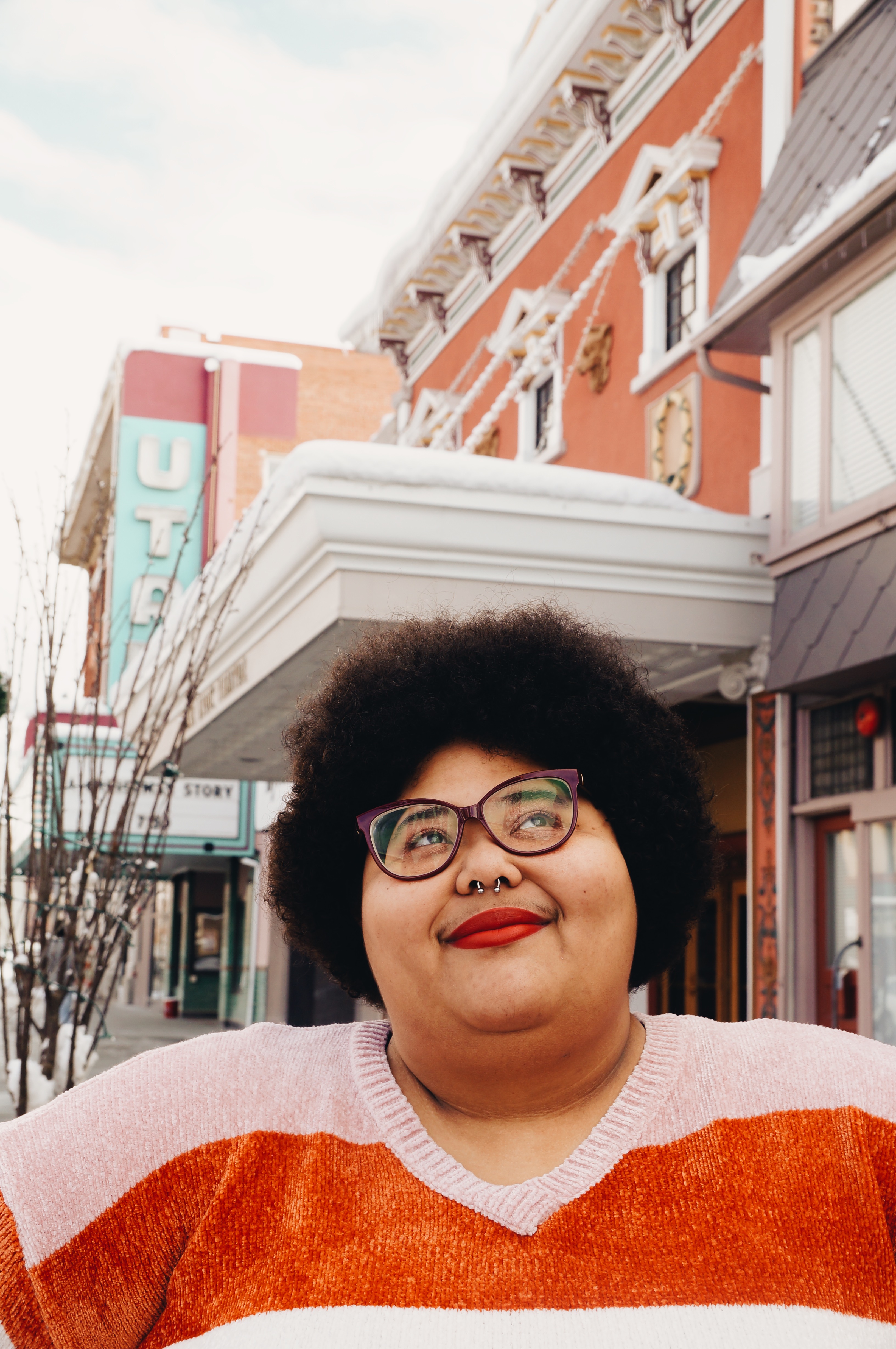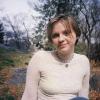Twin Cities Slam Poetry: TaneshaNicole

TaneshaNicole is a Black queer non-binary poet living in the Twin Cities, MN by way of Salt Lake City, UT. They are a Pisces and it shows. TaneshaNicole has represented venues in national competitions such as CUPSI, IWPS, WOWPS, and most recently NPS where they placed 4th overall with their team. Tanesha serves as Button Poetry’s Publishing Operations Specialist. In their spare time they can be found lounging with their partner Anni and beloved kitten Mewspresso. Their work has appeared or is forthcoming in Button Poetry, SLCC Bruin Voices Series, Write About Now, TEDx, Voicemail Poems, peculiar, Ink&Nebula, Prickly Pear Printing, and more.
Whenever I perform this poem, I like to say that this poem comes from being in a state with an incredibly high rate of suicide among queer youth, due to religious pressures. We know the numbers already suggest queer youth are much more likely to experience depression, and there’s something for me about being on the other side of that when you didn’t expect to. It took a lot to write this poem because it still came from the place of being a scared 13 year old, even though I’m 26 years old now and out of Utah. It shouldn’t have to get this bad for people to care. Poetry isn’t always related to activism, but it is a way to put a real life person in front of someone and get them to invest. I can put myself in front of someone and say, “Hey, I was this 13 year old,” and not every 13 year old from Utah can say that. It’s important to create those spaces, and I recognize I’m in a space of incredible privilege to be able to talk about it, but other people should talk about it too.
How did you weave religious imagery into this work?
This poem is just chock full of religious images. I grew up part of the Church of Latter Day Saints, also known as Mormon. The idea of the last supper, where Jesus is sitting at dinner with the apostles, is a distinct piece of iconography I’ve known since I was young. That kind of became the basis of this poem, this idea of being invited to dinner where all the people at the table are characters in my life. Then I filled the seats with other iconic bible references: Abraham, Isaac, Samson, all of whom are there and talk about the spirit of the daughter. In LDS there’s the concept of the holy ghost who tells you what’s right and wrong spiritually. At some point there’s also the yew, the sacrifice which is made for a child. In some sense I’m both the sacrifice, and, because I’m situated at the head of the table, I’m also Jesus.
Why did you choose to conclude this piece the way you did?
Because I think there is a want for hope and promise, and that is something that exists inside of normal life but also poetry, kind of like the ribbon that ties us all together. I didn’t necessarily put the end as an intentional ribbon of hope, but I did put it there because we talk about the beauty and awe of the rainbow as a promise never to flood the earth again in LDS. Rainbows are also often associated with queerness. When I was pretty young, 12 or 13, I entered young women’s in the Mormon church, the equivalent of boy scouts for young women in the LDS church. In the young women’s doctrine there’s a rainbow of values: eight values all associated with a color. When I was pretty young I had a painted wood rainbow, each part had the values we were supposed to hold. If you go through the program and complete all the tasks, at the end, you get a medallion for your completion of the rainbow of values. I’ve always thought that was so ironic, because around that time I really started to become keenly aware of my queerness, and I didnt understand how the one thing that felt so right for me was the one thing I’d been told was wrong. I wanted to end this piece strong with the rainbow, because the rainbow is just an iconic image, so much more than the promise not to flood the earth. In the queer community, it’s a way to find community and identify other queer people safely.
How do you see family, spirituality, and queerness interconnected in your work?
I write about all of these things very often, my work stems a lot from my own personal lived experiences, overcoming various trauma and things that have happened. I don’t touch on spirituality very often because I’m still on my journey with that, but it’s very present in the work that’s important to me. It’s hard not to touch on it, even in poems where spirituality is in the background. Because I grew up with it so much, my mom is very religious, so parts of my work are focused in that mindset, and parts are separate. There is a fine line with how I talk about my family in my poetry because I am aware this is not a narrative they are able to control, but also I know it is true to me. When in doubt, I fall back on what I know to be true because at the end of the day, this is something I have to be accountable for.
How did you get involved in the twin cities slam poetry scene?
I am originally from Utah, and lived there till 2018 when I moved to the Twin Cities. While in Utah, I was a big part of the college slam community and the Salt Lake City slam community. I was fortunate enough to go to represent at the College Union Poetry Slam Invitational, the Individual World Poetry Slam, the Women of the World Poetry Slam, and the National Poetry Slam. While at CUPSI and a couple other events I made more and more connections with some local twin city poets. Ollie, Addy, Blythe, Neil, all sorts of local folks. When my best friend Ry moved out here, they got really connected with the Button Poetry folks, and when I moved out here, ze helped me get connected to everybody too. I started coming out to Button Live, and to Ollie’s workshop Well Placed Commas, and I kind of made my own way into the community as a member.
What is your favorite part of the twin cities poetry community?
I really think just the collective creativity and the want to get other folks involved. I mentioned already Ollie has this workshop which they’ve been running for years at this point, and it’s still one of the most consistent things I know of and somewhere I send people for inspiration. Folks like Kyle, who does workshops about things like Masculinity and Activism and how to work through trauma. Also folks like Zach Goldberg, who also moved here and brings a fresh perspective from the communities he was a part of, and showcases another way you can learn the form and master it. I love that the twin cities have something so pronounced, that there’s all these people off doing great things in the world who at the end of the day are so close knit. I really enjoy witnessing that and also being a part of it.
How do you think we can better uplift queer women and gender-nonconforming artists in this community?
Honestly, like, give them the mic, right? As simple as it is, give them the mic, create the space. I believe it is very often that folks from marginalized communities are the ones who have to do the work to create spaces for themselves to exist. In the national scene, even in the college scene, a lot of big events include side events, usually ‘affinity’ mics. So the idea is this is a mic from POC, this is a mic for queer people, etc. Those spaces only exist because someone who has that identity has created it, not because someone from the outside has said this is important and it should exist. I think that’s a problem because how can you enter a space to grow when you’re doing extra labor that prevents you from being a person in the space. I think if we can be more intentional about the spaces we create you’re going to see something new, you’re going to see what can happen out of pure passion rather than necessity, and you’re going to keep people from being burnt out. We have a lot of incredible organizers, but it’s hard to get up every day to go and try and do this thing that consistently has a setback, and if it’s not me, then nobody else will do it.
